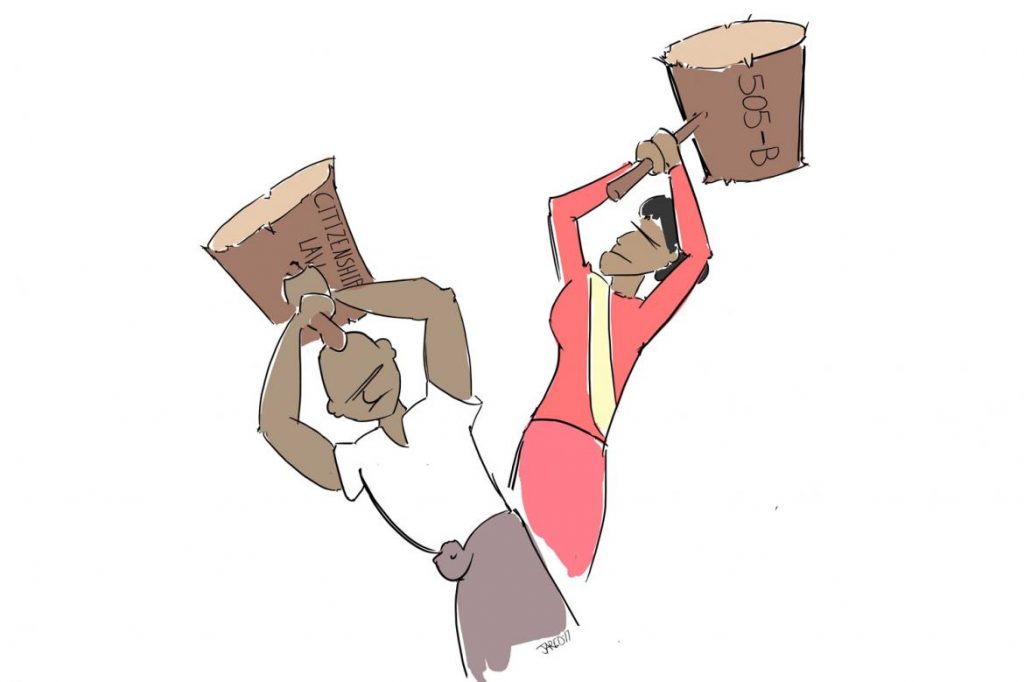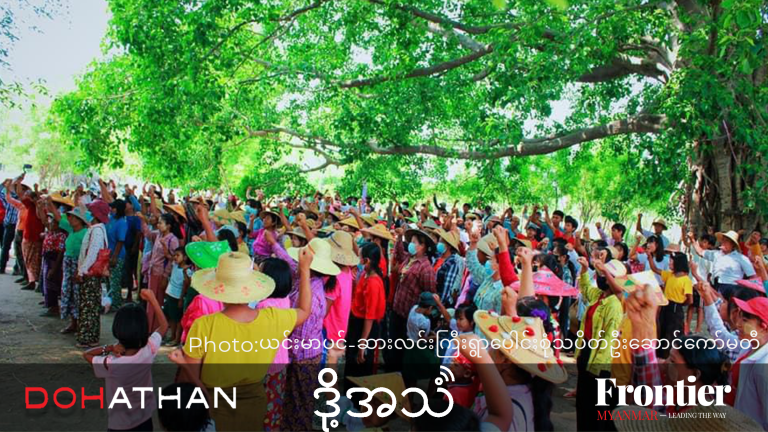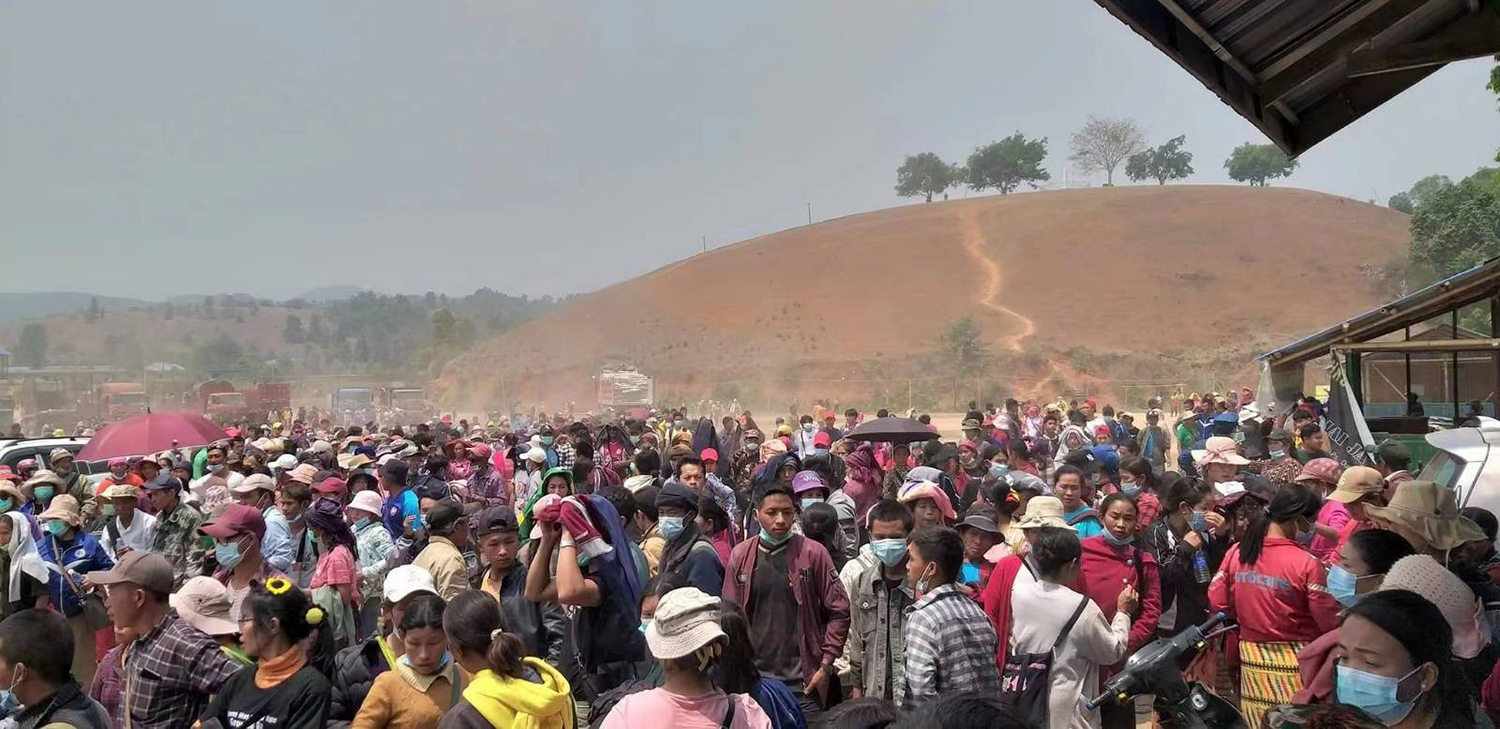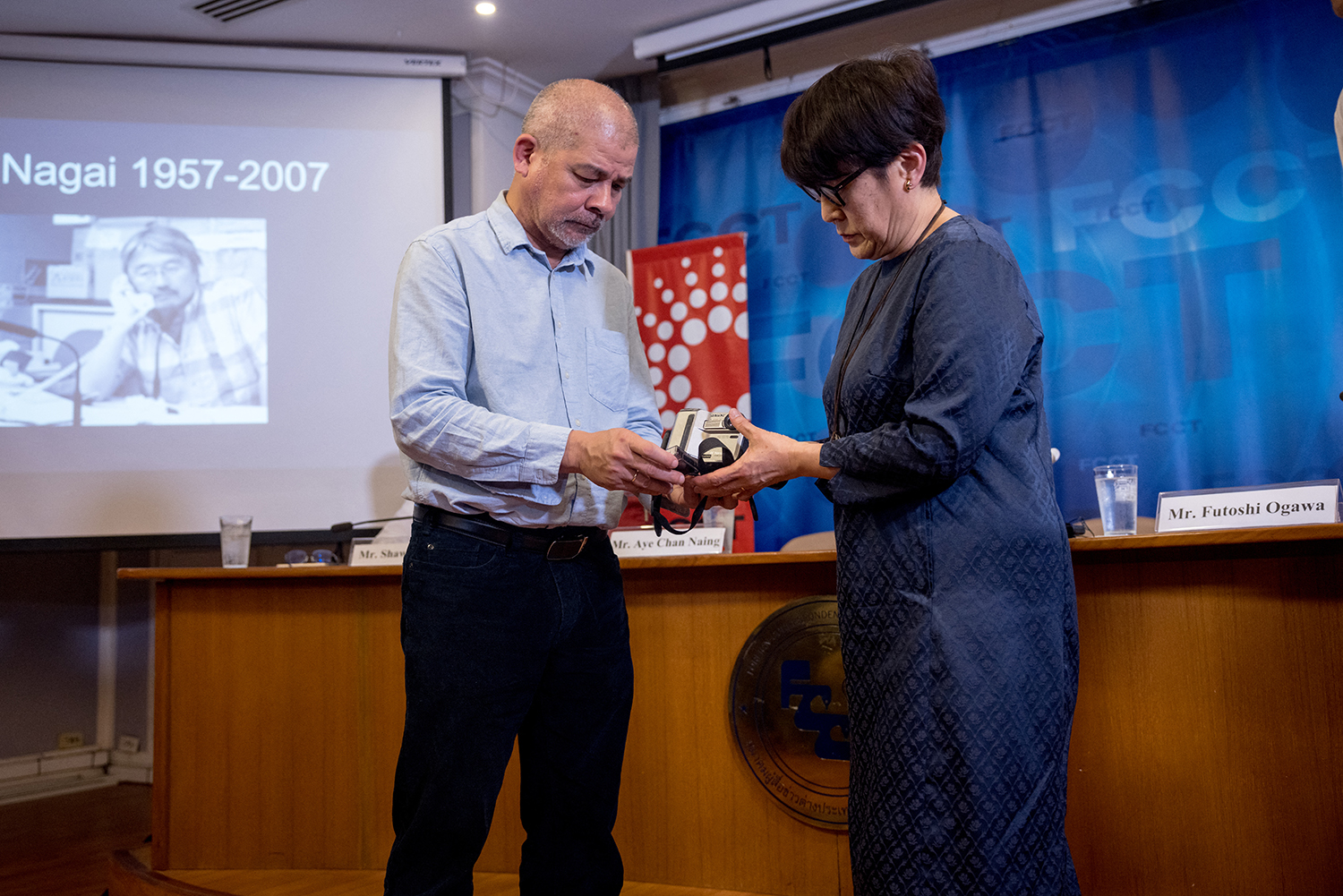The application of unjust laws against the provocative activities of nationalist activists undermines the case against them.
IN RECENT weeks, Yangon has endured two unfortunate cases of communal tension, in Thaketa and Mingalar Taung Nyunt townships.
As Frontier’s reporting has shown, both of these outbreaks were instigated by groups and individuals who are Buddhist and describe themselves as nationalists. This cohort has appointed themselves vigilantes, with Muslims the clear target.
On both occasions, the violence and bullying occurred shortly after court hearings involving Buddhist nationalist leaders. This is unlikely to be a coincidence. It’s hard not to conclude that the confrontations were confected in revenge for the government initiating that legal action.
The authorities have now ordered the arrest of seven people involved in the Mingalar Taung Nyunt conflict. Several of those who were already facing court for staging a protest outside the United States embassy last year have also now been denied bail.
The authorities should be commended for responding decisively to this attempt to foment unrest and place pressure on the law enforcement and judicial systems. Many will welcome the decision to come down hard on these dangerous and radical so-called nationalists.
Support more independent journalism like this. Sign up to be a Frontier member.
But we cannot escape the fact that they are being prosecuted under laws that are an affront to anyone who believes in democracy. Section 19 of the Right to Peaceful Procession and Peaceful Assembly Law carries a potential prison term for those who have violated the law. This could involve not notifying the authorities of their plan to hold a protest, or holding a protest (even officially permitted) that “affects the State or the Union, race, or religion, human dignity, and moral principles”.
Section 505(b) is just as vague, serving up a potential two-year prison term for anyone making, publishing or circulating any statement, rumour or report “with intent to cause, or which is likely to cause, fear or alarm to the public or to any section of the public whereby any person may be induced to commit an offence against the state or against public tranquility”.
Both laws have been used against opponents of the government with regularity. Conversely, in many other cases these laws have not been applied when those violating them are pushing an agenda supported by authorities.
We can’t just decry those instances where these laws are used against activists pushing an agenda we believe to be “just” or righteous. Nobody should be prosecuted under laws that are clear violations of international human rights norms.
That does not mean that those who are attempting to light communal fires in Yangon should escape unpunished. But the application of unjust laws undermines the case against them.
But a legal case alone is not enough. The government needs to make a moral case against those who stoke communal tensions. It needs to draw on the strength of those Buddhists who not only preach but also practise the key tenets of their religion, including loving kindness to all. This group may be in the majority, but it is being drowned out by those who preach hatred and division.
Our recent report, “The true face of Buddhism”, brought together some examples of Buddhist leaders who saved Muslims from rampaging mobs in recent years. We need to draw on the leadership of these individuals – and countless others – who believed it their duty to protect the weak and vulnerable and so stood up to those preaching violence.
Myanmar’s future is at stake. We need to ask ourselves: Do we want a country that is divided, and thus weakened, by ethnic and religious conflict, or one that is united in its diversity – and all the stronger for it?
This editorial was originally published in the May 18 issue of Frontier Myanmar.







